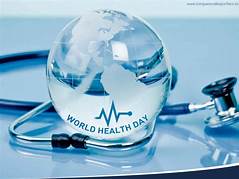World Health Day 2019: Towards equitable access to health services for all
The global community Sunday observed the 2019 World Health Day under the theme: “Universal health coverage: everyone, everywhere.” This year`s event convened by World Health Organization (WHO) reiterated the UN’s commitment towards ensuring that all people and communities have access to quality healthcare services, when and where they need them, without financial hardship.

Health and wellbeing are at the heart of human survival and development. Thus, since 1950, April 7 of every year had been observed globally as World Health Day; dedicated to spreading awareness about the essentialness of access to quality healthcare services for all as well as to dispel various misconceptions around health and wellbeing.
“This [year`s] World Health Day focuses on universal health coverage and the crucial role primary health care plays in making such coverage a reality. Half the world’s population is still unable to obtain the essential health services they need. Universal health coverage is about changing this and ensuring equitable access to health services for all, without people experiencing financial hardship as a result,” says Antonio Guterres United Nations Secretary-General in his message on the occasion of World Health Day 2019.
“This is central to building healthy societies and economies and to achieving the Sustainable Development Goals. And it is not just about improving health services. It is about policies and action across many sectors. We need to address the broader determinants of health, including social, economic and environmental factors…Health is a human right. Political commitment and partnerships will be crucial in bringing it to life. Let us show the world that we are ready to bridge the gaps in health-care coverage worldwide and deliver health for all,” Guterres concluded.
Amongst others, the targets of Goal 3 of the 17 Sustainable Development Goals (good health and well-being) are reducing the global maternal mortality ratio to less than 70 per 100,000 live births as well as ending preventable deaths of newborns and children under 5 years of age – with all countries aiming to reduce neonatal mortality to at least as low as 12 per 1,000 live births and under-5 mortality to at least as low as 25 per 1,000 live births – by 2030.










